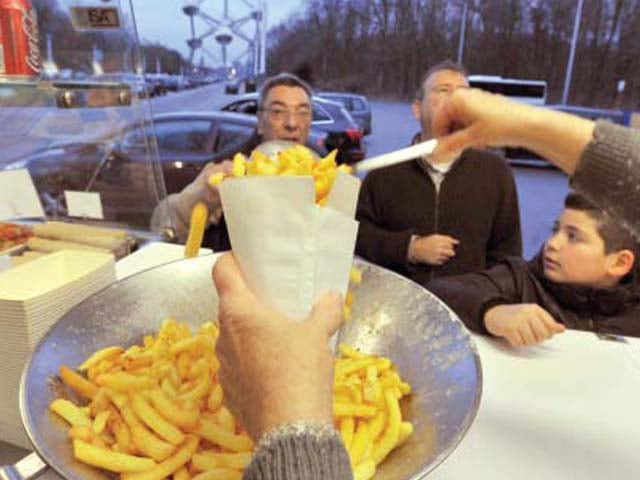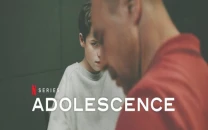Belgium’s beloved chip stall fights to survive
People consider fritkots part of the Belgian lifestyle, a place to mingle and discuss sports and politics.

Belgium’s beloved chip stall fights to survive
They are called “fritkot” in Flanders and “baraque a frite” in Wallonia, but they look the same everywhere: rectangular stalls serving large portions of fries stuffed in a tight paper cone.
There is an art to making and serving Belgian fries.
An authentic chips stall will fry the potato slices once in beef fat at 140 degrees centigrade, and then at 160 degrees centigrade. Like an origami expert, the chip-maker then tightly folds several pieces of paper into a cone to serve the crispy chips.
People consider fritkots part of the Belgian lifestyle, a place to mingle and discuss sports and politics.
But many municipalities see them as a blight in historic town squares.
An online petition and Facebook campaign helped Thierry Van Geyt, the owner of a popular “baraque a frite” at Flagey Square, keep his lease but he was forced to build a new stall in order to stay in business.
“The health controls are demanding. It’s as if everything must resemble McDonald’s,” said a 49-year-old who built a slick new stall to replace his graffiti-strewn shack.
The Flemish town of Eeklo tried to evict the two fritkots from the central square a few years ago as part of an urban renewal plan but ran into fierce opposition from the population.
“We were very surprised that the public reacted so angrily,” said Mayor Ken Loete, who received 800 emails from supporters of the fritkots.
Published in The Express Tribune, February 11th, 2011.



















COMMENTS
Comments are moderated and generally will be posted if they are on-topic and not abusive.
For more information, please see our Comments FAQ